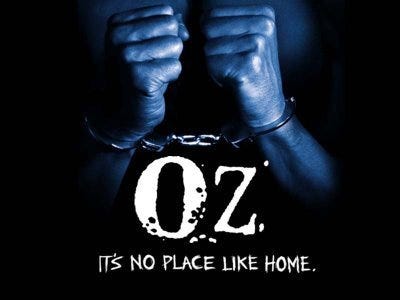So What, Who Cares (vol 2, issue 104) Why demographers worry about whether parents are happy
Hello! A quick programming note: I will be taking an end-of-summer break from So What, Who Cares? from August 24 to September 4, but will mark la rentrée with a Labor Day issue on September 7.
*

A recent study of new(ish) parents shows that having a new baby dents a person's happiness on the same level as unemployment or a partner's death. Rachel Margolis and Mikko Myrskylä surveyed a few thousand Germans before they had children and again during the first 24 months of their child's life, and 70% of the respondent said their overall happiness with life had dropped dramatically.
The drops in happiness were linked to "the continuous and intense nature of childrearing," linked to attendant troubles like difficulty nursing, chronic sleep deprivation, the breakdown of the relationship between parents, and feeling isolated at home.
Modern parenting methods may not be helping. As Jennifer Senior reported:
According to Changing Rhythms of American Family Life—a compendium of data porn about time use and family statistics, compiled by a trio of sociologists named Suzanne M. Bianchi, John P. Robinson, and Melissa A. Milkie—all parents spend more time today with their children than they did in 1975, including mothers, in spite of the great rush of women into the American workforce. Today’s married mothers also have less leisure time (5.4 fewer hours per week); 71 percent say they crave more time for themselves (as do 57 percent of married fathers).
Before any current or expectant parents begin rocking back and forth, chanting, "No way out, no way out," take heart: an earlier study by Myrskylä found that:
Parents under age 30 become less happy with the birth of each child. Parents between the ages of 30 and 39, on the other hand, stay as happy as childless couples as long as they keep their brood to four or fewer. From age 40 on, parents with one to three children are happier than childless couples. After age 50, mothers and fathers are happier than childless couples regardless of how many children they have. The results hold true regardless of sex, income or partnership status
The conclusion was that as children age and require less intensive, hands-on parenting, the parent/child relationship becomes more rewarding for parents.
So what? The Margolis/Myrskylä study discovered that the happiness drop explained why several respondents stopped at only one child. The "we're not doing this again" sentiment was strongest among well-educated people who became first-time parents over age 30. You'll remember that women over 30 are driving the uptick in baby-having here in the U.S. (vol 2, issue 83), due to more women choosing to put off parenthood until they've built a significant resume (vol 1, issue 33).

Who cares? People who watch birthrates and get nervous about slowing fertility. As The Economist reported in June, "In every rich country except Israel the total fertility rate (a measure of births per woman) is below 2.1—the level required to keep the population stable."
In other words, people are having fewer babies, mostly because having babies can be an expensive proposition as well as a joyless time-suck in the beginning. The Economist looked at the rich nations where people have more babies -- the Nordic ones -- and concluded that it's not the generous leave that's helping, nor do. baby-having bonuses.
The silver bullet for increasing a modern population? Subsidized childcare. According to studies, it's why France, Sweden and Belgium all had comparatively robust fertility rates. No word yet on whether that will address the other stressors like social isolation, fatigue or strain in the romantic relationship.
*
Your pop-culture note of the day: OZ is one television show I can't stop thinking about. It's set in a prison and it's a slow-motion study of the ways institutions and human nature interact. The musical episode features B.D. Wong's take on Tori Amos's "Leather" and that's pretty much the ethos of the show in 55 seconds: A priest having a nice singalong whereupon he meditates on the push-pull of human desire.

OZ is a brutal, hilarious, transgressive, challenging show. Among HBO dramas, it's not exactly showered with the same "Oh, this is the Golden Age of Television" acclaim as its contemporaries (The Sopranos, The Wire, Six Feet Under) and I'm happy to discuss any/all theories as to why (Twitter, email).
In HBO casting terms, OZ rivals Deadwood in terms of an ensemble packed with heavy hitters. There were some casting surprises too: if I ever get an editor to bite on the pitch "Luke Perry Can Act: A Three-Part Argument," you can be darn sure I'm including Perry's stint on the show.
Anyway, you can catch OZ streaming on Amazon Prime or download it on iTunes. But I'd recommend reading this really entertaining and thoughtful Q&A with series creator Tom Fontana, done this month. Dean Winters drops by in the middle, which only makes the interview better.
*
A NEW MONTH, A NEW FOOTER: Here's a free and easy way to show people you like them -- send them here to subscribe to So What, Who Cares? You can plumb the archives here. You can always reach out to me via Twitter or email. You can go where you want to/ to a place they'll never find/ and we can act like we come from out of this world/ and leave the real one far behind.

